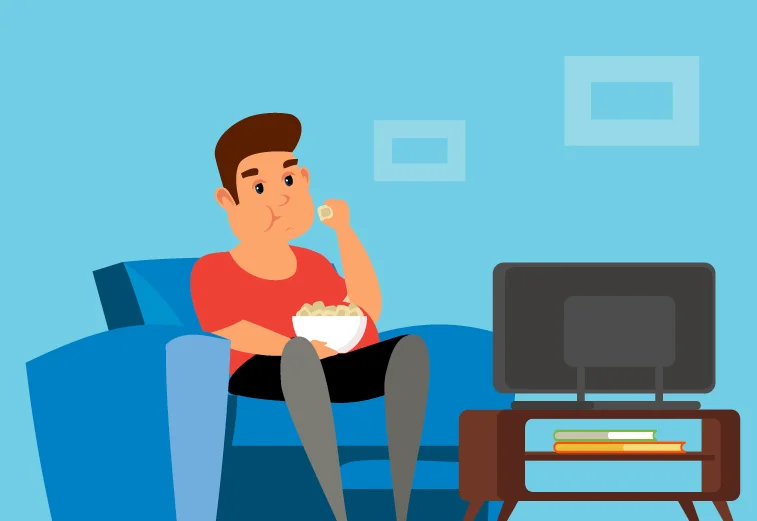What is Binge-Watching?
Binge-watching is when we watch lots of episodes of a show in one go. It’s become really popular nowadays because of streaming platforms like Netflix, Hulu, and Amazon Prime Video. Binge-watching changes how we watch TV. Even though it’s enjoyable, the reasons why we do it are complex and include how we think, feel, and act.
Reason Why We Love Binge-Watching TV shows
1. Instant Gratification and Escapism
One of the number one reasons binge-watching is the pursuit of instantaneous gratification. Streaming services offer on the spot access to finish seasons or series, eliminating the want to watch for weekly episodes. This without delay availability satisfies our desire for fast rewards, triggering the pride facilities in the mind, principal to a enjoy of satisfaction and achievement.
Furthermore, binge-watching gives a break out from reality. Engaging narratives, captivating storylines, and immersive fictional worlds allow viewers to detach from their daily stressors and immerse themselves in the lives of characters. This escapism offers a quick reprieve from real-life duties and demanding conditions.
2. Psychological Hooks and Cliffhangers
TV shows are meticulously crafted to preserve viewers engaged. Cliffhangers on the end of episodes or seasons create suspense and anticipation, compelling viewers to maintain looking to resolve the storyline. This mental hook exploits the human curiosity and choice for closure, main individuals to binge-watch in pursuit of resolution and closure.
3. Emotional Connection and Character Identification
Developing emotional connections with characters is a effective motive force of binge-watching conduct. Viewers often form robust attachments to characters, empathizing with their struggles, successes, and emotions. This emotional investment enhances the viewing enjoy, fostering a experience of connection and empathy that motivates visitors to keep watching to peer the characters’ improvement and effects.
Moreover, the process of identification with characters allows viewers to see themselves in diverse personas, experiencing their triumphs and hardships vicariously. This identity fosters a deeper degree of engagement and compels viewers to keep watching to witness character increase and determination in their story arcs.
4. Autonomy and Control
Binge-looking offers a feel of autonomy and manage over one’s entertainment choices. Viewers have the freedom to observe content material at their pace, without outside constraints. This autonomy satisfies the human want for control, allowing individuals to curate their viewing reviews according to their alternatives and schedules.
5. Social and Cultural Norms
Binge-watching has become a social norm and a shared cultural revel in. Discussions approximately popular TV suggests have emerge as common, and the worry of lacking out (FOMO) drives people to binge-watch to live culturally applicable and partake in conversations with buddies, own family, and online communities.
6 Endorphin Release and Habit Formation
Watching more than one episode back-to-back triggers the release of endorphins, neurotransmitters related to delight. This neurological praise reinforces the binge-watching behavior, leading to dependancy formation. As people experience pride even as binge-watching, they may be more likely to copy the conduct to recreate the enjoyable revel in.
Conclusion
Binge-looking is a complicated conduct influenced by way of various psychological elements. From the pursuit of on the spot gratification and escapism to emotional connections with characters and social impacts, the motives in the back of binge-looking are multifaceted. While binge-watching can provide entertainment and relaxation, moderation and cognizance of its capability effect on mental fitness and nicely-being are critical for maintaining a healthy stability among amusement activities and different factors of existence. Understanding the psychology behind binge-watching enables people navigate their viewing conduct and make aware selections concerning their media consumption.
